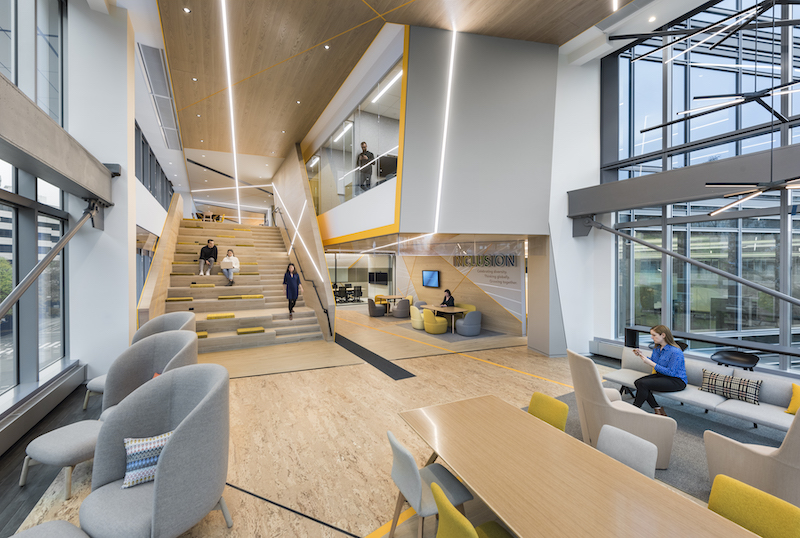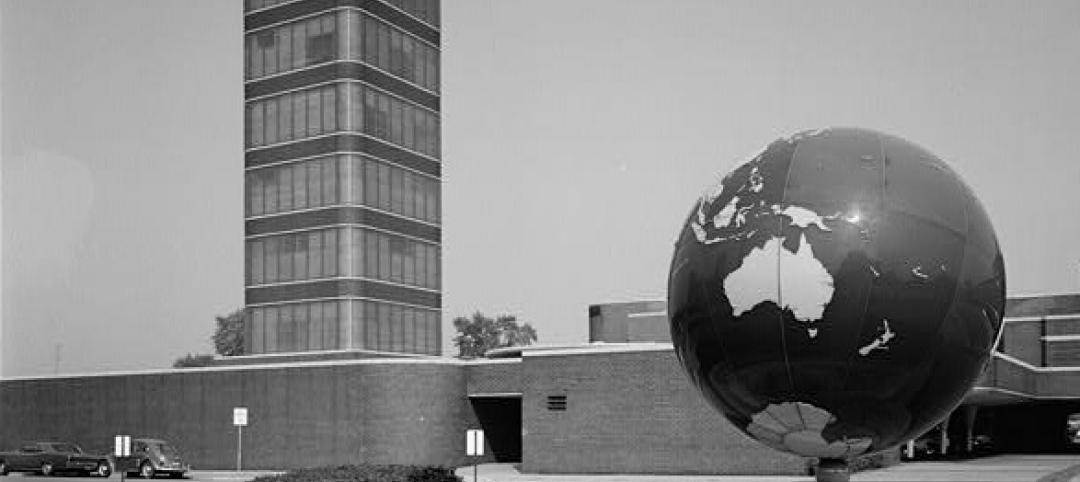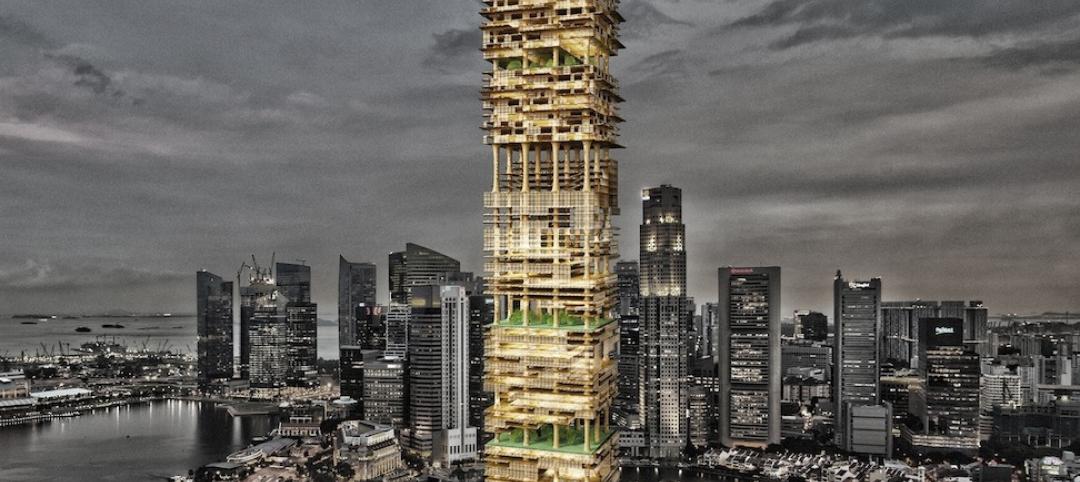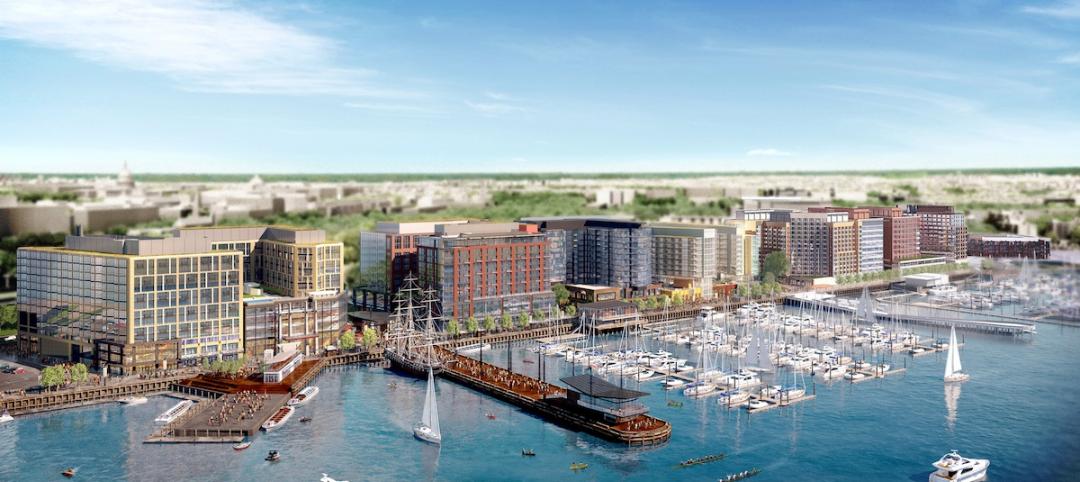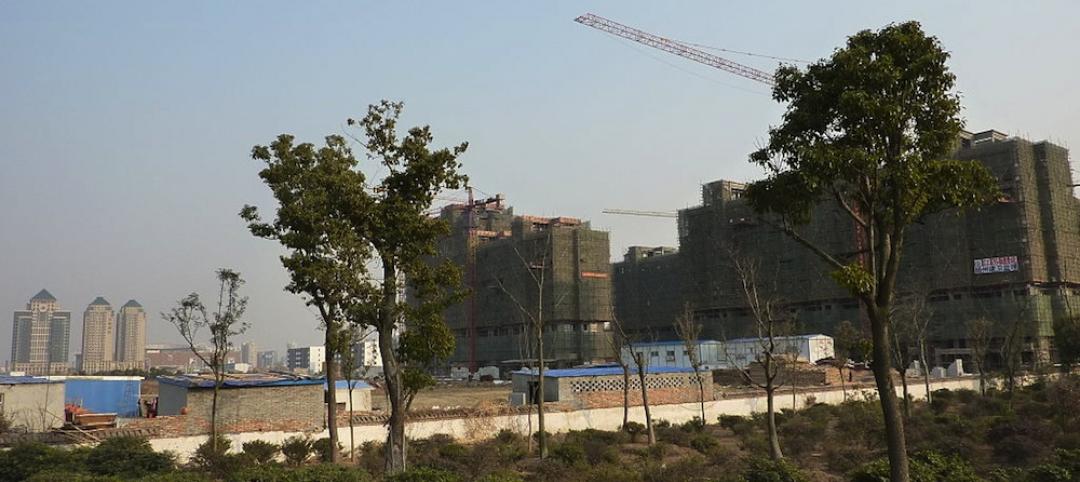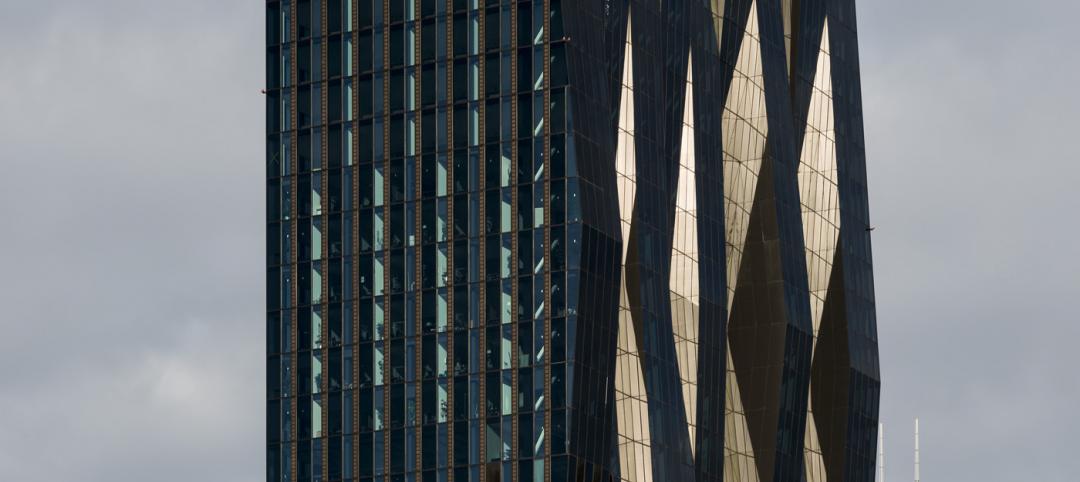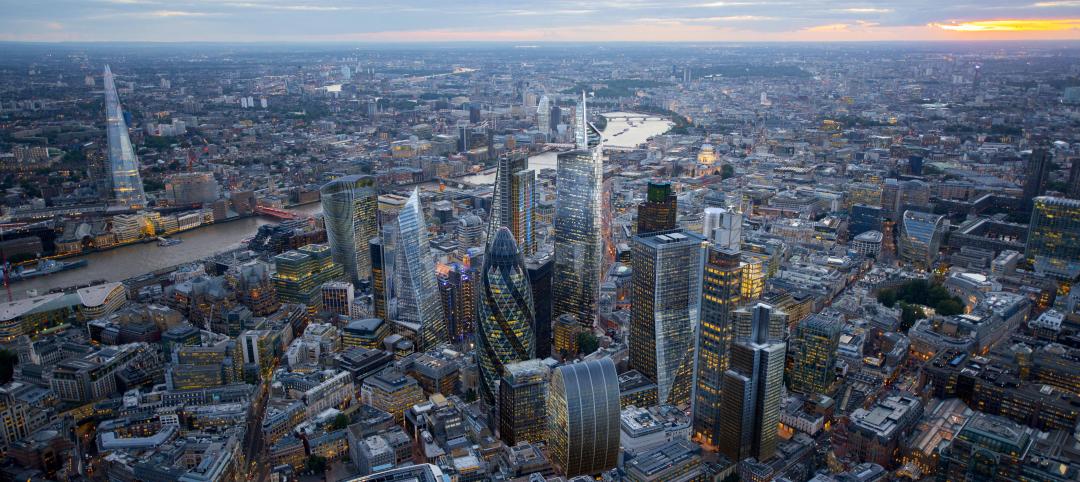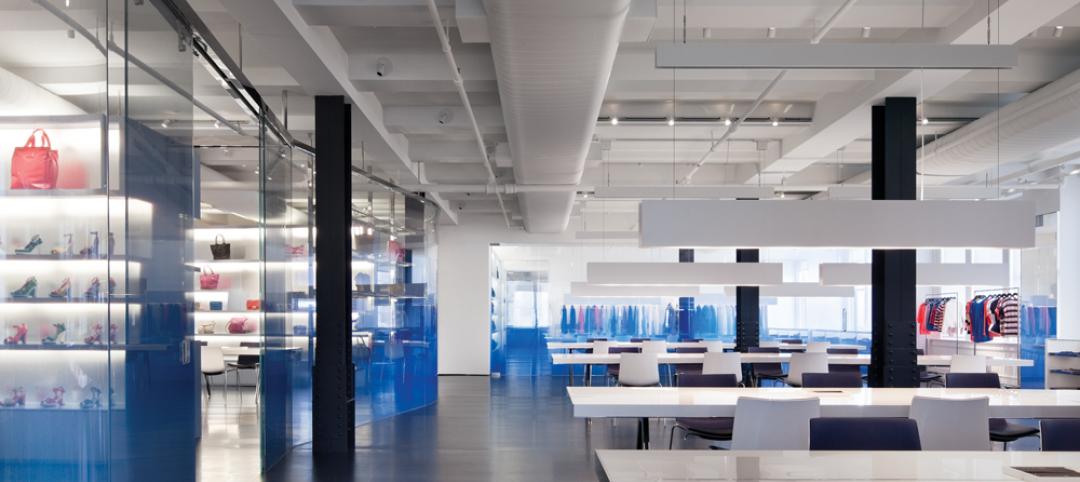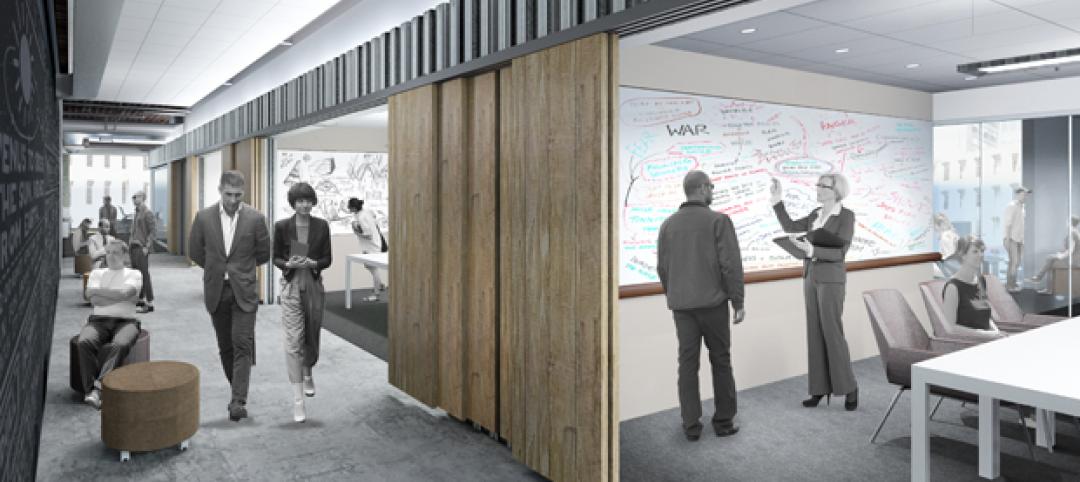Akamai is the largest distributed platform operating at the edge of the Internet. On Nov. 1, it held a grand opening ceremony for the opening of its 19-story, 480,000-sf headquarters in Cambridge, Mass., which brings employees from six properties under one roof.
Those 19 floors are connected by the Akamile, a mile-long uninterrupted path that extends from the building’s street lobby to its highest floor. Sasaki was the interior designer of this building, and its vision for Akamile was to provide areas for socialization (from high-tech conference rooms to game stations), business, and seclusion, each of which is clearly denoted with colors and furniture specific to the workspace.
The goal of the space is to get employees to want to be in the office, as opposed to working remotely. “To connect the world, we must first connect to each other” was Sasaki’s mission statement for Akamai’s headquarters.
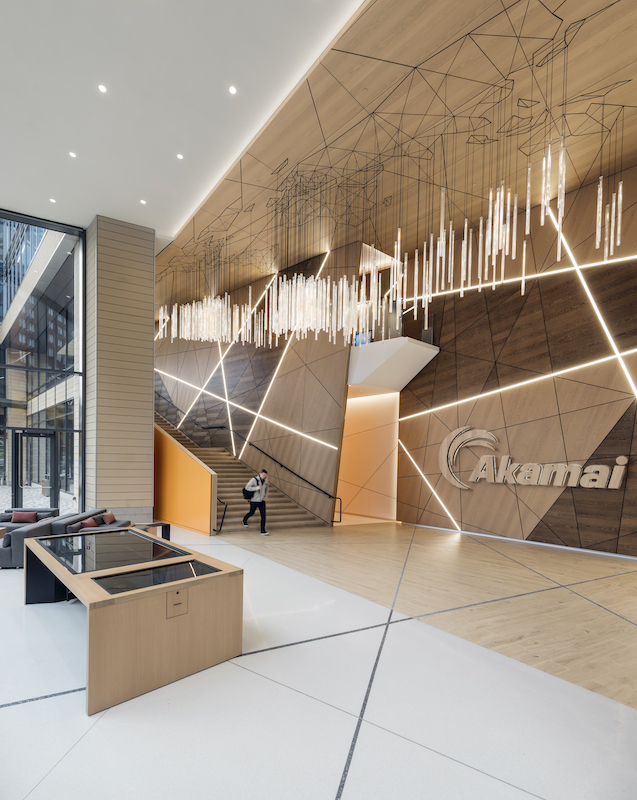
Greeters meet visitors coming into Akamai's two-story lobby.
To provide a personalized, welcoming experience, the building’s two-story lobby dispenses with a concierge desk in favor of greeters. The first three stories of the building are in “Akamai orange,” the top three in “Akamai blue,” and the rest in different color schemes that provide wayfinding for visitors as they step from the elevators. The color scheme is also meant as a directional signal to collaborative work areas.
(The color is bright in the Akamile, and subdued in workspaces. Brightness denotes when workers are in collaborative versus individual spaces.)
Sasaki developed a parametric interior design for Akamile, to generate an interconnected line pattern throughout the building. These color lines increase in spaces where connectivity and communal work are frequent.
Akamile is also used for programming. The Commons, on the third floor, includes an IT help desk, coffee bar, mail room, and supply room. Floor eight offers ping pong and pool tables, and the stairs double as shared seating. There are also moveable stairs that allow the floor space to be reconfigured.
The Building Team on this project included Boston Properties (developer and owner), Pickard Chilton (exterior design architect), Stantec (exterior AOR), and Turner Construction (interior CM). The interior construction exceeded $100 million, and Akamai has taken a 15-year lease.
At 19 stories, the headquarters is the tallest office building in Cambridge’s Kendall Square. The building includes Akamai’s new Network Operations Command Center, Broadcasting Operations Control Center, and Security Operations Center, where DDoS attacks are detected and mitigated.
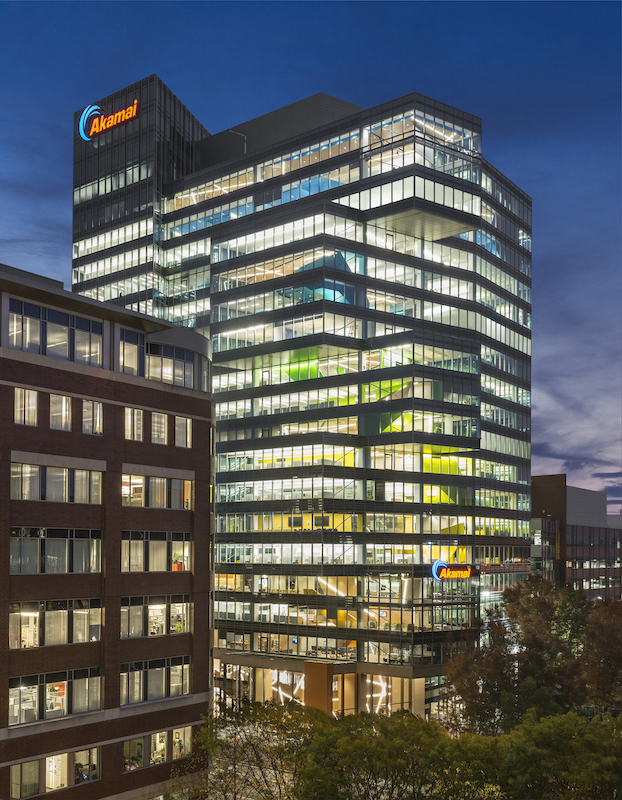
The interior buildout of the 19-story headquarters cost more than $100 million. The building was designed to achieve WELL and LEED Gold certifications.
Akamai’s headquarters is shooting for WELL certification by next summer. All foods sold in the building will include at least 50% fruit or vegetable options. At least half of the food has grain flour as their primary ingredient. Nonpackaged foods will list their ingredients.
Over 70% of the building’s workstations are within 20 feet of a window. There are electronic sit-to-stand desks, and the interior is monitored for thermal comfort. Private spaces use fabric screens to absorb sound, and all spaces are designed to limit reverberations and provide proper sound levels relative to acoustics.
The building’s operations are designed to be water- and energy-efficient: A rooftop solar panel array provides more than 82,000 kWh per year of electricity. The building’s HVAC system features active chill beans (made in Massachusetts) that are expected to be at least 30% more efficient. The building will receive LEED v4 Gold core and shell certification.
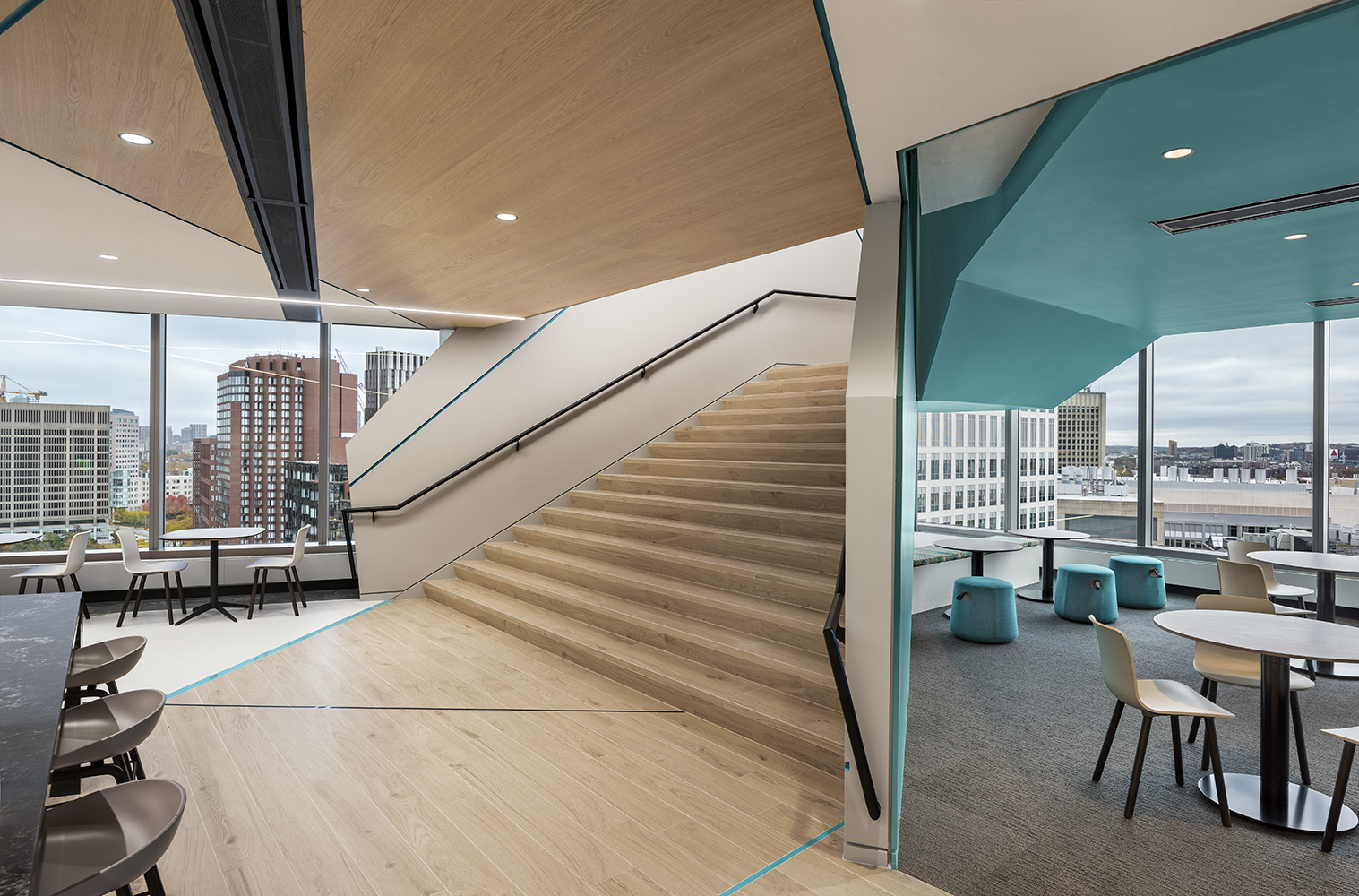
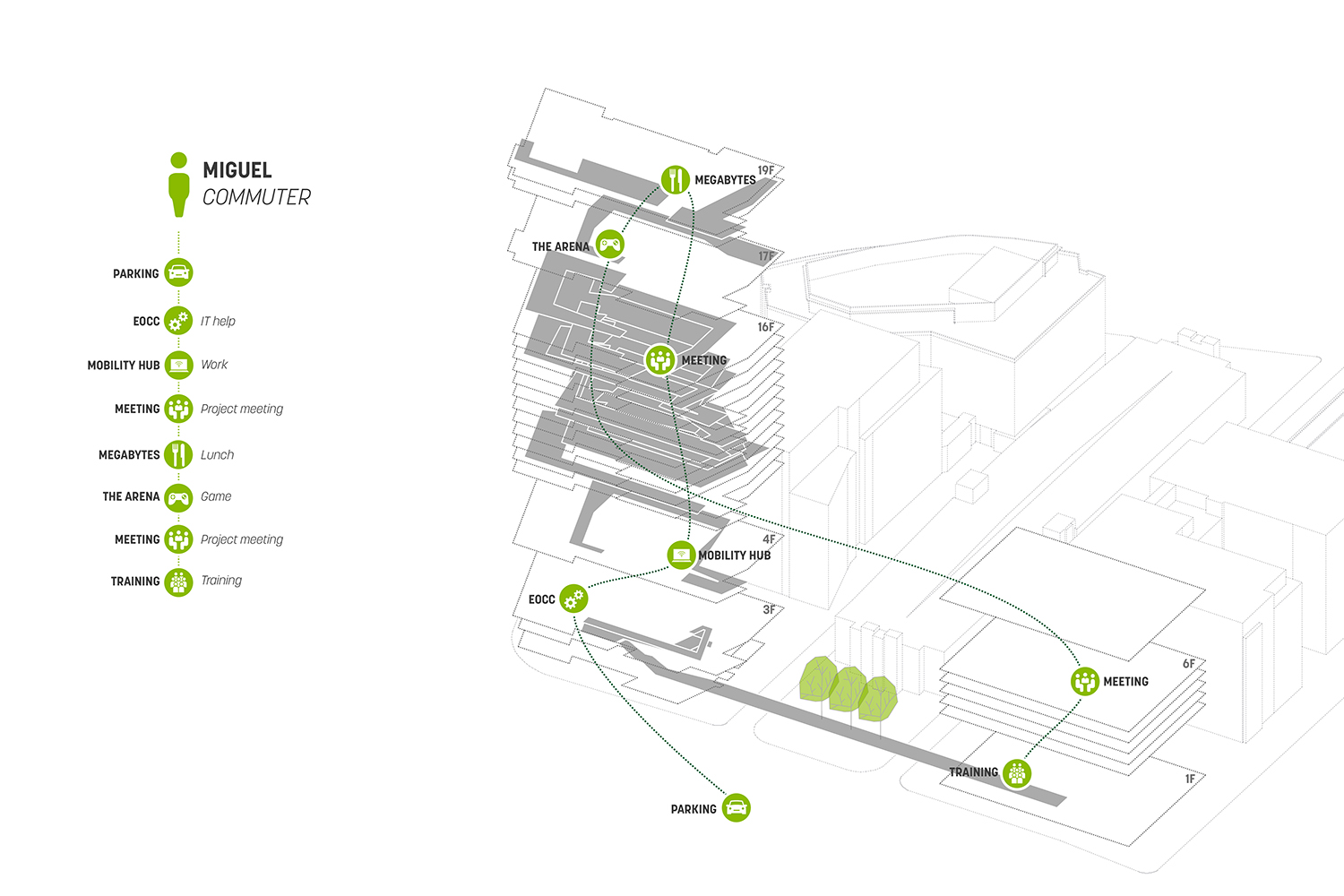
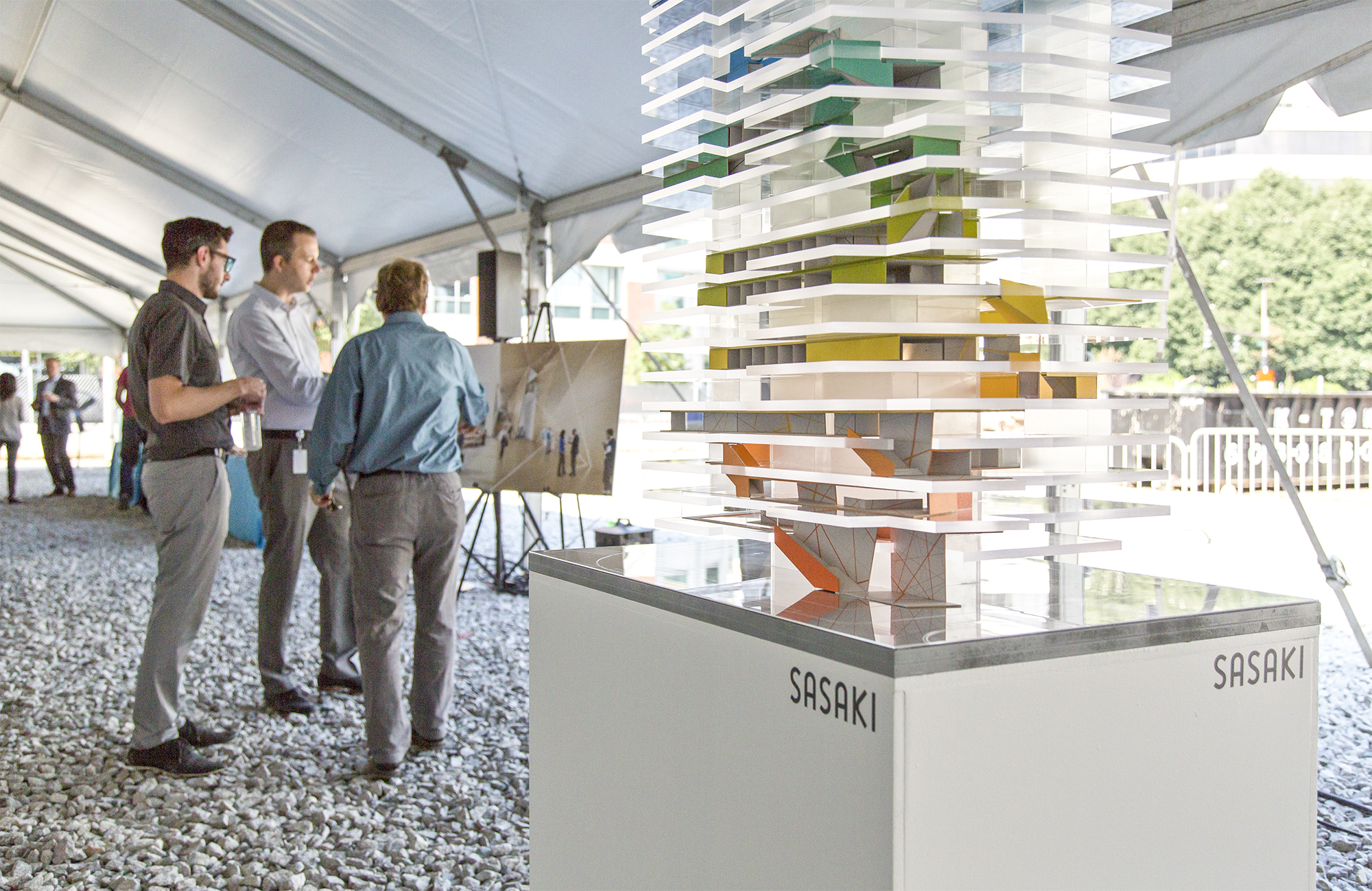
Related Stories
| Mar 25, 2014
World's tallest towers: Adrian Smith, Gordon Gill discuss designing Burj Khalifa, Kingdom Tower
The design duo discusses the founding of Adrian Smith + Gordon Gill Architects and the design of the next world's tallest, Kingdom Tower, which will top the Burj Khalifa by as much as a kilometer.
| Mar 24, 2014
Frank Lloyd Wright's S.C. Johnson Research Tower to open to the public—32 years after closing
The 14-story tower, one of only two Wright-designed high-rises to be built, has been off limits to the public since its construction in 1950.
| Mar 21, 2014
Forget wood skyscrapers - Check out these stunning bamboo high-rise concepts [slideshow]
The Singapore Bamboo Skyscraper competition invited design teams to explore the possibilities of using bamboo as the dominant material in a high-rise project for the Singapore skyline.
| Mar 20, 2014
Common EIFS failures, and how to prevent them
Poor workmanship, impact damage, building movement, and incompatible or unsound substrate are among the major culprits of EIFS problems.
| Mar 20, 2014
D.C. breaks ground on $2B mega waterfront development [slideshow]
When complete, the Wharf will feature approximately 3 million sf of new residential, office, hotel, retail, cultural, and public uses, including waterfront parks, promenades, piers, and docks.
| Mar 17, 2014
Rem Koolhaas explains China's plans for its 'ghost cities'
China's goal, according to Koolhaas, is to de-incentivize migration into already overcrowded cities.
| Mar 13, 2014
Austria's tallest tower shimmers with striking 'folded façade' [slideshow]
The 58-story DC Tower 1 is the first of two high-rises designed by Dominique Perrault Architecture for Vienna's skyline.
| Mar 12, 2014
London grows up: 236 tall buildings to be added to skyline in coming decade, says think tank
The vast majority of high-rise projects in the works are residential towers, which could help tackle the city's housing crisis, according to a new report by New London Architecture.
| Mar 12, 2014
14 new ideas for doors and door hardware
From a high-tech classroom lockdown system to an impact-resistant wide-stile door line, BD+C editors present a collection of door and door hardware innovations.
| Feb 27, 2014
Open or private offices? It depends on the business plan
Open layouts are grabbing headlines as a hallmark of the new workplace—think the Google campus or Facebook's headquarters. And for smaller-scale operations, open designs are often lauded for being less expensive than private office plans. But does that mean all offices should have an open layout?


